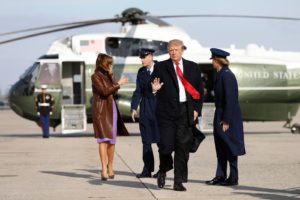
On March 24, Thailand had its first democratic election since the 2014 coup that put its military in power. All 500 seats in the Thai House of Representatives were waiting to be filled, as the previous House had been dissolved with the coup. The 250 seats in the Thai Senate are filled via appointment by the military. Unlike in most modern democracies, the election results were not announced until March 28, and the results won’t be officially finalized until May, two months after the initial election. The two main parties that competed in the election were the Pheu Thai party, which support the former (and notoriously corrupt) prime minister Thaksin Shinawatra, and the Palang Pracharat party, which support current prime minister and coup leader Prayut Chan-o-cha. Thaksin Shinawatra served as Thailand’s prime minister from 2001 to 2006, when he was overthrown in a military coup, and now lives in exile abroad. His sister, Yingluck Shinawatra, served as prime minister from 2011 to 2014, when she was overthrown by Chan-o-cha and another military coup.
The delay of the election results has been perceived by many as the military doing their best to manipulate the results to their advantage, an idea supported by the fact that the Election Commission continued to discover extra ballots that supported the pro-junta rule. The initial results of the election seemed to show Pheu Thai winning a large majority, but as more ballots continued to be “discovered,” their margin of winning became slimmer and slimmer. Thailand’s electoral rules, found in a recent constitution that the military wrote in 2017, make it so that the party with the highest percentage of the popular vote don’t necessarily win the highest number of parliamentary seats, so for now it seems that Palang Pracharat and Prayut Chan-o-cha will remain in power (which would have most likely happened no matter what the result). Some wonder if King Maha Vajiralongkorn (Rama X), who ascended to the throne in 2016 following the death of his much beloved father King Bhumibol Adulyadej (Rama IX), will try to intervene, but it is unlikely. The Thai royal family doesn’t often get involved in politics, and King Vajiralongkorn already made a huge step when he bared his elder sister, Princess Ubol Ratana, from running for prime minister earlier this year.
The Thai election, meant to be a historic move towards democracy for the country, has actually had quite the opposite effect. No major changes were implemented, and the delay in election results just further highlights the junta’s hold over the country. Thailand is as undemocratic as ever, and is perhaps more so now that it is under the guise of democracy.
Anissa Weisel
Anissa, a staff writer at “In the Zeitgeist,” is a second-year student at NYU majoring in Politics and minoring in Art History. Her mother is Thai and her father is American, but she spent the majority of her childhood in Singapore before moving to New York for college. Anissa currently interns with the District Attorney of New York, and has interned with Attorney General Eric Schneiderman in the past, as well as the American Chamber of Commerce in Singapore. She hopes to attend law school in the future, and hopefully eventually practice criminal law either in the United States or the United Kingdom.



